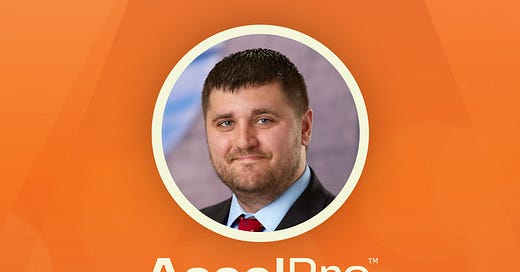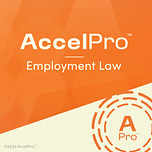Welcome to AccelPro Employment Law, where we provide expert interviews and coaching to accelerate your professional development. Today we’re featuring a conversation about workplace harassment and training.
Our guest is Andrew Adams, the practice leader in DarrowEverett’s Labor and Employment Practice Group. He regularly advises clients ranging from small businesses to large multinational corporations regarding compliance with state and federal regulations and human resources matters, including personnel policies, day-to-day employment issues and internal investigations.
He frequently trains companies on best practices to spot harassment, how employers can avoid it, and how supervisors are the first line of defense against it. We will dive into Andrew’s time training to become a Navy SEAL and his time crafting employment policies with the sheriff’s department, both of which have greatly influenced his legal career. The supplemental materials and episode transcript are available below.
AccelPro’s expert interviews and coaching accelerate your professional development. Join AccelPro Employment Law now for a free trial of everything we offer to members.
Interview References:
Andrew Adam’s DarrowEverett profile.
Supplemental Materials:
Adams, Andrew. (2023, February 9). Going by the Handbook Can be Employer’s Best Defense. Darrow Everett LLP.
TRANSCRIPT
I. THE VARIABLE NATURE OF HARASSMENT
Matt Crossman, Host: Let’s start off by defining exactly what harassment in the workplace is.
Andrew Adams: It’s variable. When you look at harassment in the workplace, it can range from anything from comments to gestures to things that an everyday person would see as harassment.
But it also includes things that aren’t of that nature. It can be jokes that just almost cross that line or postings or pictures that somebody might have in their office cubicle. We’ve also had employees complain about things like inappropriate literature in the workplace.
So it’s really variable depending on the eye of the beholder. We look at what offends the person and how to address that.
MC: What are some of the causes of workplace harassment and how can companies adopt policies to avoid them?
AA: Most cases stem from management styles, at least what you see when you go to an administrative agency or a court where somebody’s actually litigating or bringing a complaint. And it’s generally a management style that’s outside the bounds of what somebody’s used to. So they’re a little bit more strict than they are with other individuals, or it might be something that somebody’s not used to in the workplace.
We see a lot of interactions that are a result of personalities that just don’t mix. And sometimes people will think that that’s because of a characteristic that they exhibit or a misunderstanding between cultures, and that can lead to harassment incidents as well. And that’s excluding the smaller percentage of incidents where you have some outright harassment in the workplace.
—
II. TRAINING AS THE FIRST LINE OF DEFENSE
MC: You train employers on these issues, and in that training you call supervisors the “first line of defense.” What do you mean by that?
AA: So when you look at a company’s management model, you always look for supervisors to protect your company as much as you can. And supervisors act as your first line of defense in reducing liability for a company.
You’re never going to be able to eliminate all the liability. But if your supervisors are properly trained on how to address and identify instances that could constitute harassment, and they communicate freely and openly with HR about those issues, that’s where you’re going to see the most reduction in your liability. Supervisor training is so essential to recognizing what an executive or a higher management level individual is not going to see on a day-to-day basis.
MC: What are some common problems those first line of defense supervisors face when they see harassment in the workplace and how can employers avoid them?
Listen to this episode with a 7-day free trial
Subscribe to AccelPro | Employment & Labor Law to listen to this post and get 7 days of free access to the full post archives.












